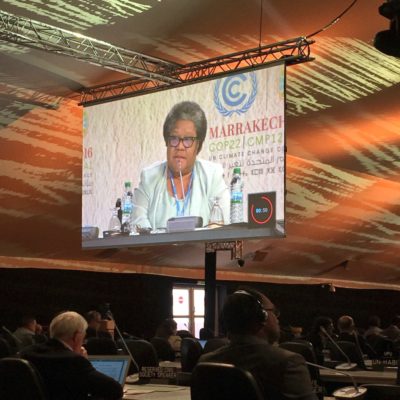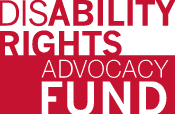Disabled Persons’ Organizations have led advocacy in the Pacific region to align legislation with the CRPD; to develop disability inclusive disaster risk reduction strategies; to participate in the Indigenous Peoples’ movement at the UN; and to reach out to remote island communities to include voices of marginalized persons with disabilities.
In 2016, Samoa and the Federated States of Micronesia became the latest Pacific Island countries to ratify the CRPD after years of advocacy by DPOs supported by the Disability Rights Fund and Disability Rights Advocacy Fund.
An interview with Setareki S. Macanawai, CEO of the Pacific Disability Forum and Global Advisor on the Grantmaking Committee of the Disability Rights Fund, describes the disability movement’s growth.
The fight for disability rights has come a long way.
In the 1960s, service providers and international NGOs supported special schools and traditional community-based rehabilitation. These services emphasized a charity approach to persons with disabilities. They exacerbated the attitudes of society by treating persons with disabilities as incapable, to be looked after by others, and as recipients of goodwill.
In the 1980s, a handful of us began to challenge the charity model. Persons with disabilities mobilized, establishing disabled persons’ organizations that advocated for the right to access all services. We started to work against the stigma faced by persons with disabilities.
With the Convention on the Rights of Persons with Disabilities (CRPD) – including the early signing or ratification by the Cook Islands, Tonga, and Vanuatu – we finally had a tool and language to push for our rights. We used the CRPD to activate persons with disabilities and raise awareness among elected officials. We also participated in advocating at the regional level to create a unified strategy towards the rights of persons with disabilities.
There are unique issues that persons with disabilities in the Pacific face.

Climate change and disaster risk present immediate threats. Women and youth with disabilities are increasingly taking on leadership roles, a positive trend as many countries look to support the implementation of the CRPD and the Sustainable Development Goals. Expanding the movement will support the collective goal of achieving the inclusion and rights of persons with disabilities.
At the UN Climate Change Conference 2016 in Morocco, Ipul Powaseu, head of the Papua New Guinea Assembly of Disabled Persons, spoke on behalf of the Women and Gender Constituency about the importance of inclusive participation of all in civil society in disaster risk reduction: “The eroding shorelines are threatening our way of life and livelihoods. Decreasing food security; decreasing access to clean water, sanitation, and hygiene; reduced access to infrastructure, shelter and basic services; and increasing displacement — these are realities that I, as an indigenous woman with disability, from a small island in the Pacific, am faced with.”

